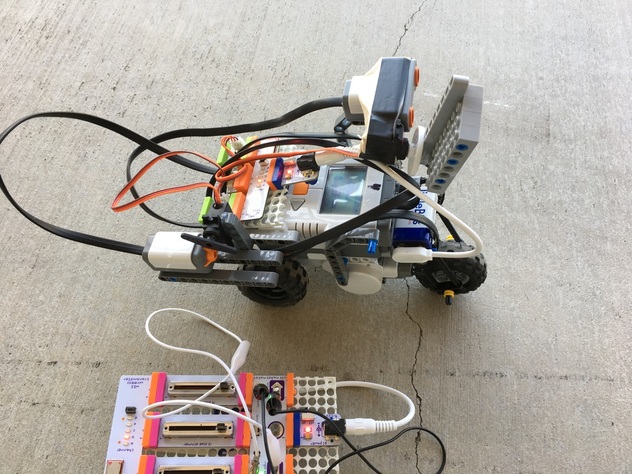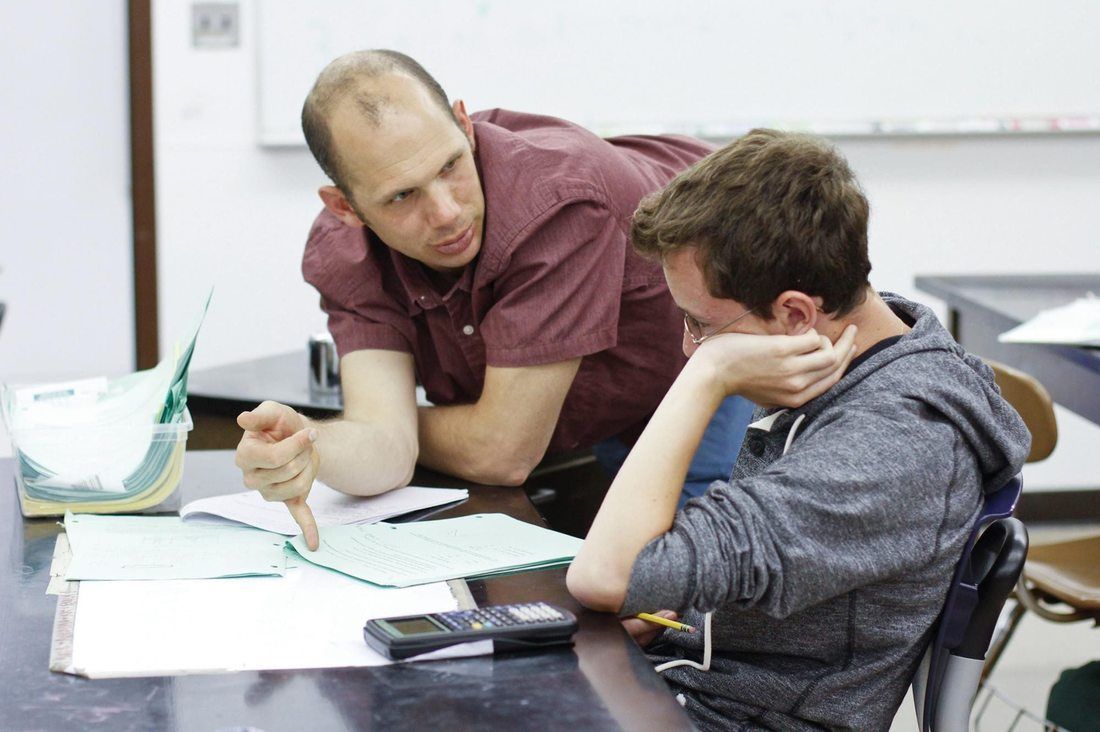|
|
|
Like many teachers, I have always struggled with making assessment meaningful for students. After reading Show Your Work by Austin Kleon I moved from student Google Doc lab reports in chemistry class to blog posts. My goal was for student to build a public archive of curated work that students can feel proud of. For the past few years student blogging has been a success. Click here for an archive of this year's chemistry blogs.
Keeping the above in mind, this is my first year teaching a robotics class in the curriculum and I wanted to institute the same blogging strategy. Unlike chemistry, my robotics class didn't show as much enthusiasm about the blogging process. When I asked one student why his answer was fascinating: "The stuff we make in Robotics class doesn't feel like school. It feels real. Blogging feels like school. They don't really match." Over the past two years, many of these student's teachers have embraced blogging, and while I firmly believe it to be a powerful, public and authentic medium for sharing work, it was clear from the above response, and others I have gathered, that the students yearned for a more authentic, less contrived vehicle to break down the barrier between the "real-world" and school environments. Our answer: Instructables! Whenever I have to learn how to create anything I, and my students, use Instructables. It's just what we do. Because Instructables represents a place where "real" people, go to create "real" things, and is run by a "real" company (Autodesk), whose software we use to create "real" prototypes, it felt like a perfect place to help students, in a Robotics class where building authentic "real" prototypes is core to the class ethos, engage in a type of "real" world product showcasing. Once the decision was made (two weeks ago), I jumped in headfirst, and invited students to use Instructables to post not only share their most recent inventions, but outline their design process. The student's products exceeded my expectations and reminded the power of not only a public product, but also how the power of outlining and unpacking the invention process into steps for others to follow. Instructables provides a fabulous medium where this process happens, not via a teacher created rubric, but via observing the thousands of examples that already exist on their website! Below are three student created examples from my Robotics class at Sonoma Academy.
Shortly after he left The Daily Show Jon Stewart told Fresh Air's Terry Gross that, "It is through intense structure that I find the safety to be creative." As a teacher, this statement resonated with me. I love the lesson planning process and Stewart's quote really encapsulated why I do. Through a structured, directional process, even the most "control freakish" teachers (I fall in this category) can carve out space that allows for intense student creativity, showcase, mess, disaster, invention, tears, high fives, and the myriad of other emotions that come along with LEARNING, when the lesson plan process is given the respect that it deserves.
On to a more tangible example of what I am referring to. This year is my first teaching a Robotics class in the curriculum, rather than as a team, club or after school workshop. My fear in teaching the class was that it would turn into a "club" like environment full of "BattleBot Obsession" and void of meaningful discussion around programming, mechanical engineering, and the ethical implications associated with deciding which tasks we keep for ourselves, and this we offload to our "machines.". However, you can't deny that placing technology such as littleBits, Lego NXT, MakeyMakey, VEX, TETRIX, SAM Labs, Arduino, and the many other tools we have and will explore in the hands of high school students isn't also a recipe for fun, and at times, fun just for fun's sake! Click here for an example of a similar invention cycle template. As you can see, this template positions the learning of basic NXT programming, rather than as an individual project, in the context of the larger, more meaningful task to "smash" together the littleBits and NXT systems to do something that is currently difficulty and/or expensive to do: build a functional remote control for an NXT robot. See a picture of a final product below.
Upon conclusion of the RC project, students then blogged about their process, and reflected on ways other tools could be combined to create, new, unusual and useful outcomes. Click here to read student blogs. This project was then followed up with another project where students leveraged a more "Human-Centered" design process to build an NXT powered device that would improve the quality of life for another faculty member on campus.
Like the project described above, the initial part of this invention cycle involved learning basic skills in the context of the overall plan. This time, students needed to framliarize themselves with a more complex programming language (RobotC) and in doing so, built "BattleBots". Per my fear described in the second paragraph, the structure of the invention cycle lesson plan kept me centered and focused on the overall, more meaningful goal rather than distract from learning tasks that require more rigor and depth of focus. This structure carved out a space where the pure fun of constructing a BattleBot existed in the context of an overall, more meaningful process. One student even built an NXT Robot Flamethrower as her BattleBot! Love it! See video below.
Teaching Robotics is teaching me that structure and student creativity can exist together and can, if positioned correctly, be symbiotic.
Are you a teacher interested in learning more about integrating technology into inquiry-based learning cycles? Click here to learn more about our online classes (Note: more classes are being added weekly). Are you a parent in the San Francisco Bay Area and looking to introduce the sciences to your child? Click here to learn about our summer camp offerings for students grades 2nd-8th. |
Categories
All
Archives
March 2024
|


 RSS Feed
RSS Feed